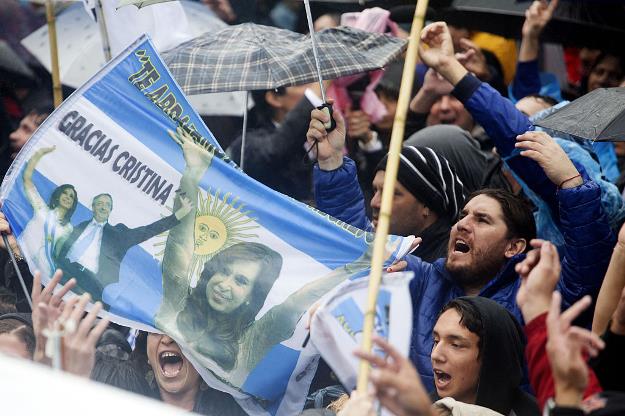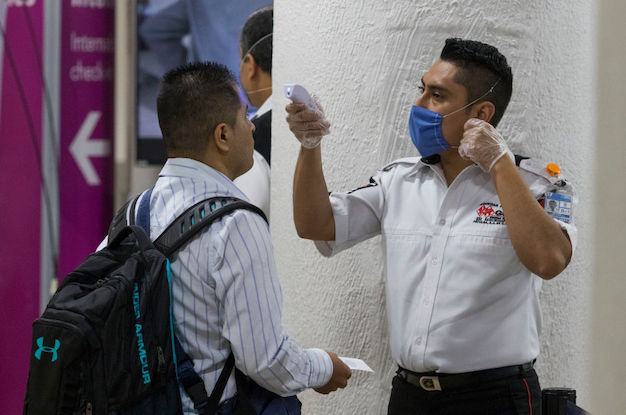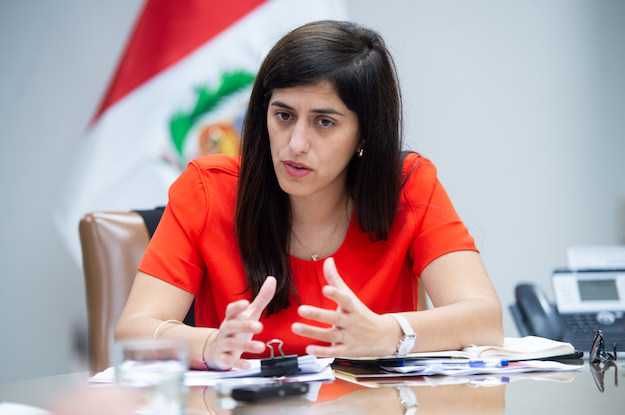When a federal judge indicted former President Cristina Fernández de Kirchner for treason and asked the Senate to strip her of parliamentary immunity, some of her critics saw his decision as an important step toward bringing a powerful politician to justice.
However, many others – fans and critics of Fernández alike – saw Judge Claudio Bonadio’s request on Dec. 7 as just another example of how the judicial system in Argentina has historically been used as a political tool.
To corruption and legal experts, the judge’s move may have been excessive, but worst of all, it could be a step back in the broader battle against corruption and impunity, since it detracted from efforts to rid the judicial system of its appearance of partisanship.
“This ruling has generated an unnecessary circus,” said Natalia Volosin, a lawyer and expert on corruption issues. “Now, if (her corruption) investigations move forward, it’s easier for Fernández to say that she’s being politically persecuted.”
The case is, admittedly, complex. Fernández is accused of covering up Iran’s involvement in the 1994 bombing of the Israeli-Argentine Mutual Association (AMIA) building in Buenos Aires, which killed 85 people. The bombing’s decades-long investigation has been marked by controversies – most recently, the death of prosecutor Alberto Nisman, who was found dead four days after he formally accused Fernández of being involved in the case. Initially called a suicide, the case is now being investigated as a murder.
In the court ruling, Bonadio justified the pre-trial detention of Fernández and five of her associates, including her former foreign minister, Héctor Timerman, by stating that “if they remain free, they could hinder judicial actions, as well as the discovery of the truth and the possibility of reaching a conviction.”
The judge also pointed out the high risk of flight due to the severity of the crime and the potential sentences the accused could face. These were the same arguments used to issue the recent pre-trial arrest warrants for Julio de Vido and Amado Boudou, Fernández’s planning minister and vice president, respectively.
But while there is enough evidence in Nisman’s report to justify an indictment and proper investigation into Fernández’s actions, there is no concrete evidence that she is actively attempting to tamper with the investigation, said Volosin, who read the 500 pages of Bonadio’s ruling. This is a marked difference from de Vido’s case, for example, in which there was such evidence.
The Fernández “arrest warrant is a total excess,” said Volosin.
Others share this view. The Center for Legal and Social Studies (CELS), a human rights organization, issued a statement characterizing the pre-trial detention as a “disproportionate and illegal measure” and expressed concern that “if there’s no due process, the criminal system is used as a tool to persecute political opponents.”
Another element of Bonadio’s ruling that has sparked criticism is his interpretation of the 1994 bombing as an “act of war” that was “ordered, organized, (and) financed” by Iran. It is this characterization of the attack that allows the judge to charge Fernández for treason. However, both Fernández’s defense and Mauricio Macri’s government agree that the bombing was a terrorist attack, and that describing it as an act of war is questionable.
The judge’s background also raises doubts about his ruling. Bonadio, who has been a federal judge since 1994, was appointed by then-President Carlos Menem and is part of the infamous group of “napkin judges” – a group of judges who were said to answer directly to the executive power.
Bonadio, who is under investigation himself for alleged money laundering and illicit enrichment, has received 75 formal complaints for bad performance since 1998. While most of these complaints were later dismissed, seven are still being evaluated; this makes him the sitting federal judge with most complaints under his name. Bonadio, further, has had a troubled history with the Kirchners. In 2014, the Fernández government accused the judge of “extortion” and unsuccessfully called for his impeachment.
This tension between Bonadio and Fernández has led many to question the incentives behind Bonadio’s use of pre-trial arrest in this case.
“It’s very interesting to see how judges use this doctrine,” said Hugo Alconada Mon, a reporter for La Nación who focuses on corruption. “They’ve been very selective in terms of who they arrest and who they don’t.”
Bonadio’s ruling has largely seen a lack of a support across the political spectrum. A few hours after Bonadio’s ruling, Miguel Ángel Pichetto, leader of the Peronist Senate majority, confirmed that his block wouldn’t vote to remove Fernández’s parliamentary immunity unless there was a formal court sentence against her. In the meantime, Mauricio Macri’s government has approached the issue with caution. In a press conference, chief of staff Marcos Peña emphasized that the case “requires a proper investigation and a due defense process for those accused.”
Regardless of how this plays out, next year will be a busy one for Fernández. The two major corruption cases she’s being investigated for – Hotesur and Los Sauces, collectively known as the “Route of the K-Money” – are likely to make important advancements.
Bonadio’s decision to call for Fernández’s arrest in the AMIA case not only further delegitimizes an already mistrusted justice system, but it also makes it harder for other judges to properly and impartially prosecute her without being accused of political persecution.
“We should be focused on the corruption cases that are much more advanced and have stronger foundations,” said Volosin.
—
He is an Argentine journalist based in Buenos Aires.







